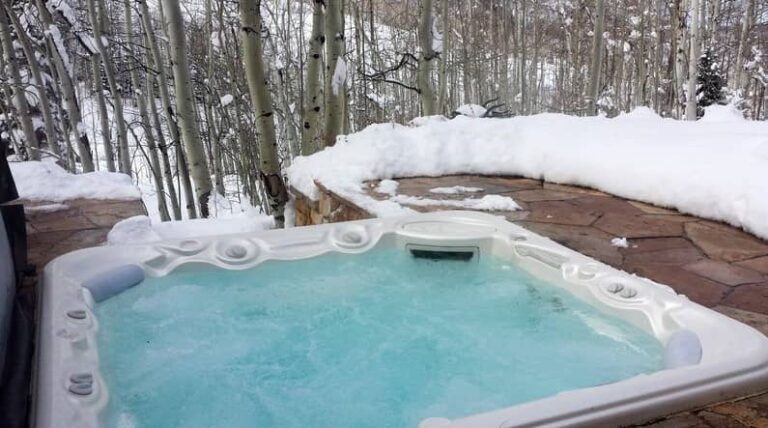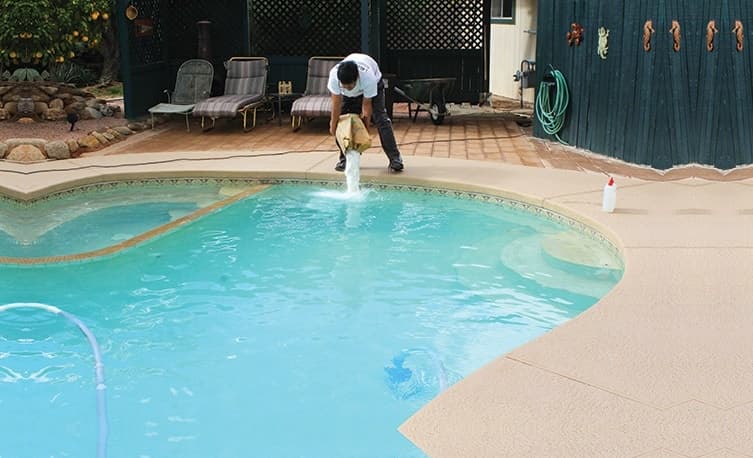Can Sunlight Affect My Garage Door Sensor? Explained
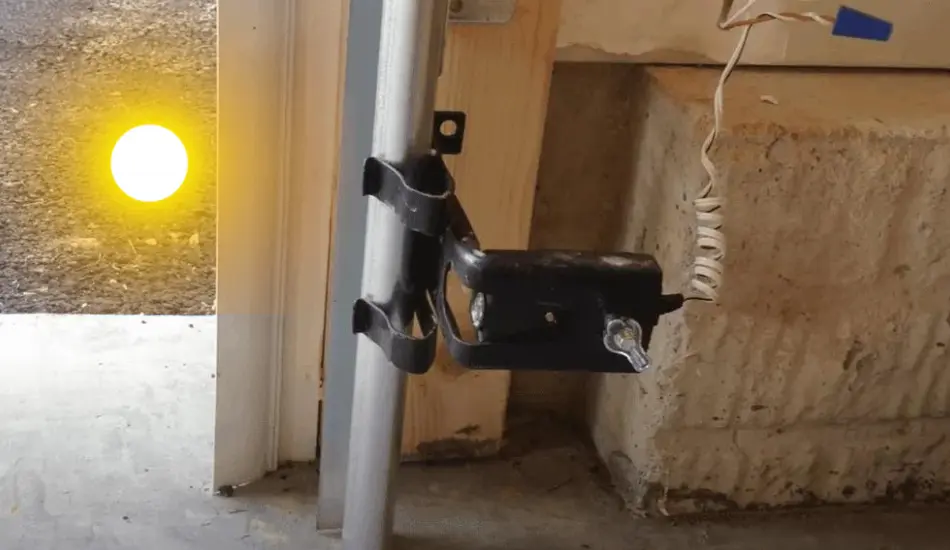
For homeowners who prioritize the safety and functionality of their garage doors, it is very important to recognize the external factors that can affect their operation, such as sunlight. These sensors play an important role in safe and efficient work and require regular maintenance.
One of the questions we are interested in is whether sunlight affects garage door sensors. If the sensors are exposed to the sun’s rays, can they interfere with their operation or damage them? In this article, we’ll explain everything you need to know about this topic. So, let’s start!
Can Sunlight Affect My Garage Door Sensor? Yes, sunlight can affect garage door sensors. The sun’s rays from the sun can overpower the infrared signal between the sensors, which can lead to malfunctions. This interference typically occurs when the sun is at a specific angle, causing the garage door to not close properly or behave unpredictably.
Direct sunlight can disrupt the beam of garage door sensors, making them react as if there’s an obstacle in their path. Previously, these sensors were not as often used as they are today. However, they have become standard for enhanced safety in most modern garage doors.
If the sensors’ alignment is off, causing the beam to break, the door will automatically switch from closing to opening to prevent accidents. To understand this better, let’s first see how these doors work.
Related Article: How Long Do Garage Door Opener Sensors Last?
Table of Contents
How Do Garage Door Sensors Work?
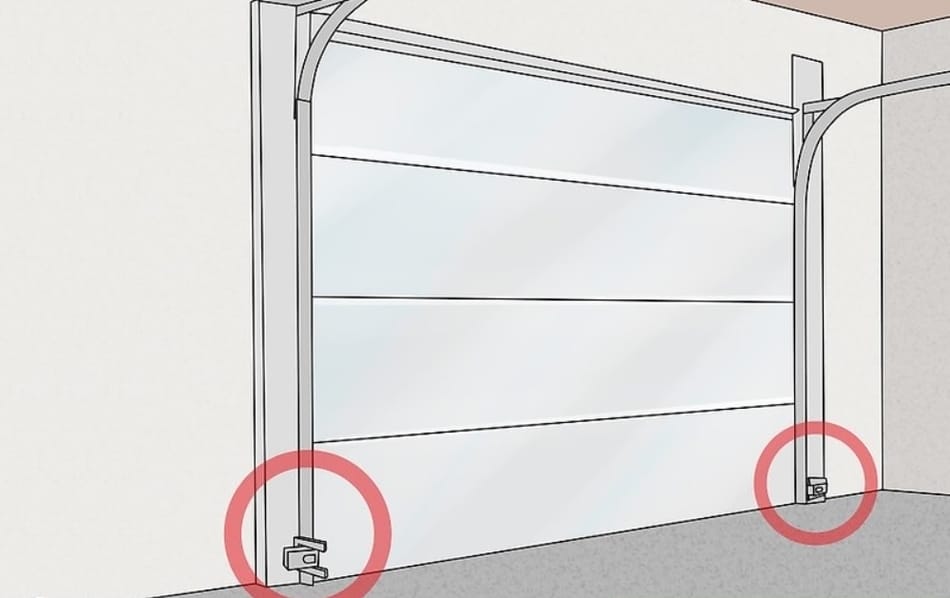
Garage door safety sensors are equipped with a feature known as the photo-eye. Positioned on either side of your garage door, usually no higher than six inches from the ground, these infrared sensors form an invisible barrier.
This barrier is designed to detect any obstruction in the path of the closing garage door. When an obstruction is detected, these sensors trigger the garage door to stop closing and reverse its direction, ensuring safety.
Given their vital role in preventing accidents, it’s clear why safety sensors are an essential part of your garage door mechanism. Prompt attention and regular maintenance are advised whenever you notice any malfunctioning in these sensors to maintain the safety and functionality of garage doors.
How Sunlight Impacts Garage Door Sensors
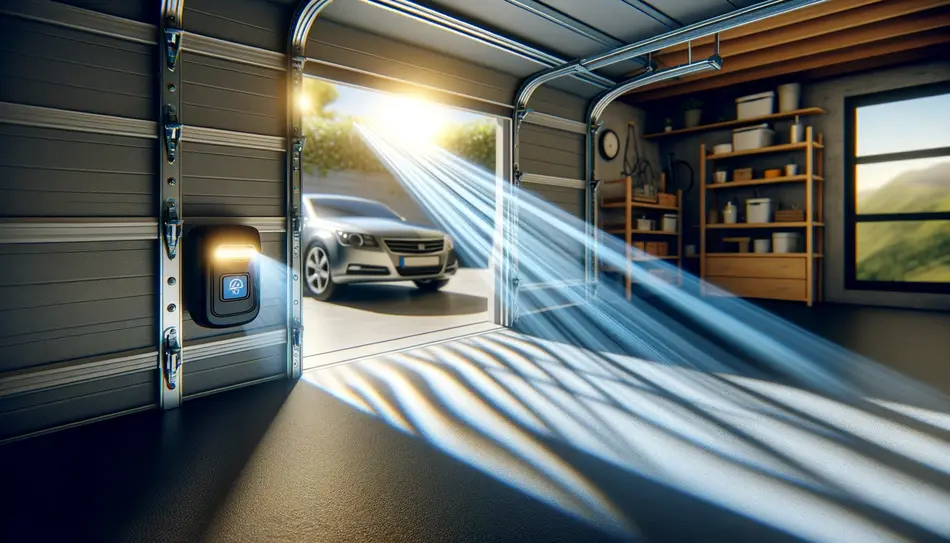
Garage door sensors rely on infrared light for establishing connections, and sunlight can sometimes disrupt these connections due to their intensity. Here are the main reasons why sunlight impacts the garage door sensors:
Infrared System and Sunlight Interference
Under normal circumstances, garage door sensors, which use infrared systems, operate reliably. However, infrared light is just one component of sunlight’s broader light spectrum. Sunlight includes various types of light, some of which are more energetic than infrared.
This more intense light can interfere with the infrared signals, leading to issues where the garage door may not function properly despite the sensors being clean and free from obstacles.
The good news is that such interference from sunlight is usually temporary. This is because garage door sensors emit focused infrared beams. Interference occurs only when the sun is positioned at a specific angle in the sky. So, there might be times when you face unexpected issues with your garage door.
The Risk of Heat Damage
In addition to signal disruption, long exposure to direct sunlight can lead to heat-related damage to your garage door sensors. This can cause components within the sensors to warp or suffer other forms of damage. Once damaged, the sensors might fail to receive signals, compromising the safety mechanisms of your garage door.
The damage or disruption caused by sunlight to garage door sensors often goes unnoticed until the sensor fails. It’s advisable to do regular inspections of your garage door system to prevent such scenarios and mitigate the effects of sun-induced wear and tear.
How to Protect Garage Door Sensors From Sunlight
Now that we know that garage door sensors are sensitive to sunlight, let’s look at ways to protect them. Here are some strategies to consider:
1. Switching Sensor Positions
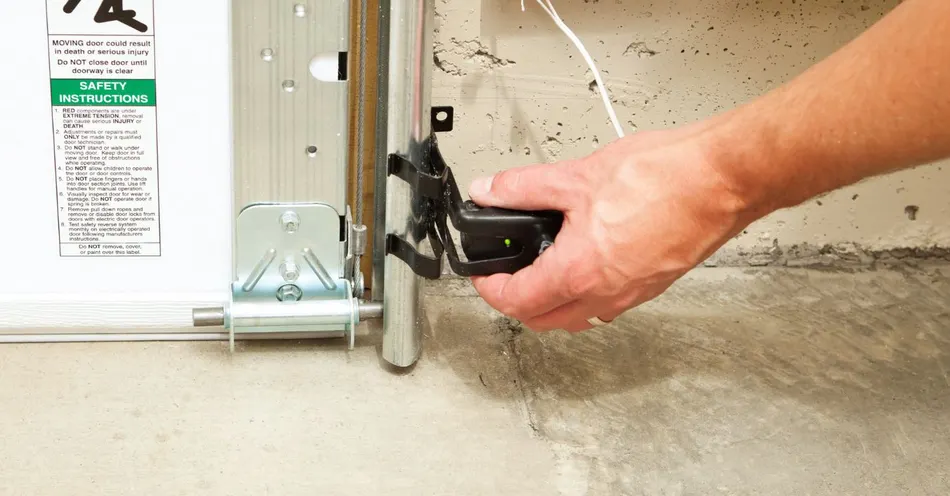
A simple yet effective solution for reducing sunlight interference is to switch the positions of the sensors. Switching the receiving sensor to the opposite side can prevent direct exposure to sunlight. This approach is particularly useful for automatic garage door safety sensors but may not be as effective for other types like pressure sensors or external remote sensors.
2. Relocating the Sensors Within the Garage
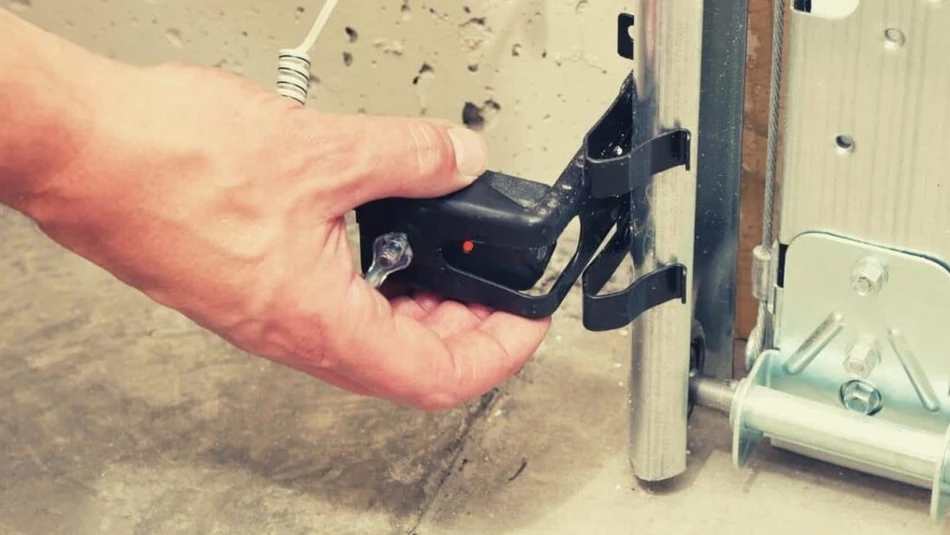
Another practical method is to reposition both sensors deeper inside the garage. See where the sun hits the sensors in your garage throughout the day and identify the areas that receive prolonged exposure to sunlight.
By moving the sensors to locations less affected by sunlight, you can decrease the likelihood of interference. This adjustment can enhance the sensors’ performance and reliability. However, this is not always applicable.
3. Build a Shade Box
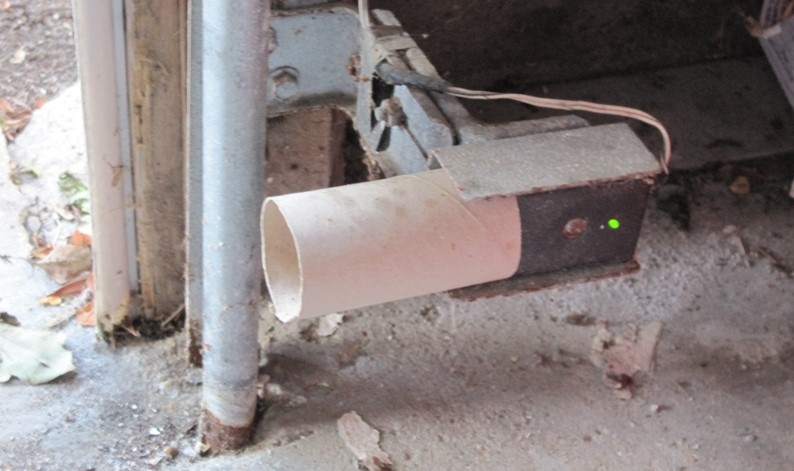
As we mentioned before, the key to ensuring your garage door sensors work effectively is to maintain an uninterrupted signal between them. A great way to protect them is a DIY solution, which involves building a shade box using materials like cardboard or lightweight wood. This enclosure should be designed to fit around the sensors without hindering the garage door’s operation.
4. Purchase Sun Shades
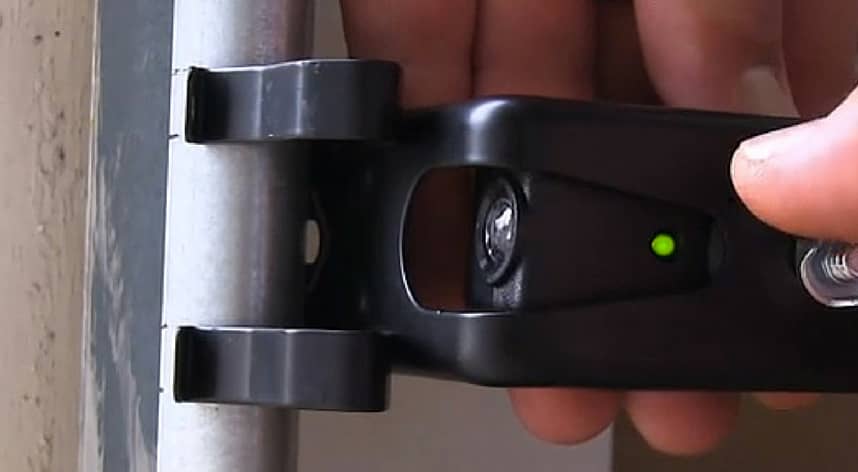
Lastly, you can opt for commercially available sunshades that are designed specifically for garage door sensors. These can be easily found through online retailers and are available in various colors and designs.
They are affordable, easy to install, and can easily block sunlight rays from interfering with your sensors. Consulting with professionals is often the most reliable approach for more complex garage door challenges.
Replacing Damaged Garage Door Sensors
There are occasions when garage door sensors may fail, potentially due to factors like direct sunlight exposure, weather conditions, or technical malfunctions. When the sensors are not working, it is recommended to call a professional. They can provide expert advice, answer specific questions, and suggest suitable products based on your individual needs and the specifics of your garage door system.
FAQ: People Also Ask
Why won’t my garage door close when the sun is shining?
When the sun shines directly on your garage door sensors, it can disrupt the infrared beam they use to detect obstacles. This disruption can make the sensors behave as if there is an obstruction, preventing the door from closing.
Why do garage door sensors go bad?
Garage door sensors can fail due to various reasons. One common issue is a malfunction in the wiring, which a professional might suggest fixing by replacing the sensors. Additionally, the sensors can wear out over time, especially since they are often made of plastic. This material can become brittle in cold weather, leading to breakage if the sensors are accidentally bumped during their regular operation.
Final Thoughts
In conclusion, sunlight can impact garage door sensors’ functionality, often leading to operational issues like false obstructions. This interference is due to the sunlight overpowering the sensors’ infrared signals. However, homeowners can effectively solve this issue with several practical solutions, from repositioning sensors to sun shades.
Understanding and addressing this sunlight sensitivity ensures your garage door system’s reliable and safe operation. I hope this article has helped you, and if you have more questions, feel free to comment below.





